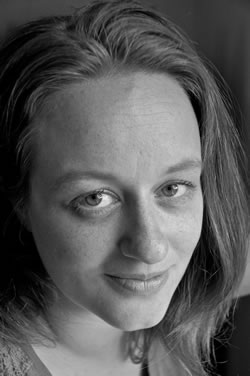|
Every writer has those stories and books that make you want to cry uncle, that convince you that the stories you want to tell have been told before, and better. I was only halfway through Stuart Dybek's I Sailed with Magellan when I decided I should just give up on writing altogether; that the intimacy he achieves with childhood and adolescence was more than I could ever imagine accomplishing, and I wanted to leave it to him, a far more lyric, braver writer than I would ever be.
At these humbling moments, I remember advice I received from Dan Chaon while studying fiction at Oberlin. At the end of a semester, he wrote to me: "There's a very specific world that only you can write about, a map that only you can make. This is your book: think about the highways, cities, rivers, state lines that you want to add to your atlas, the people you'd like to be, the situations that draw you in, that scare you and compel you." This way of thinking about our jobs as writers, as mapbuilders, was my first step toward finding my voice, toward gathering the themes that underpin my most successful work.
Dan's advice gave me confidence to pursue the circumstances that interested me, to not belittle my own curiosities, as unexotic and ordinary as they seemed at times. I've never been an autobiographical writer, but Dan's advice reminded me that I didn't need to reach outside my own point of view to make a story interesting. Furthermore, to try and do so was almost guaranteed failure. I was reminded of this the other night at dinner, when my four-year-old daughter announced, with slight alarm and annoyance, that she couldn't see her own eyes from inside her eyes. When I figured this out as a child, I panicked. That discovery of my self was followed by the dreadful realization that I would forever be inside that self. As an intellectual exercise, this idea of an inescapable self still invokes minor claustrophobia. But as a writer, accepting and trusting (and mining) this fixed point of view is one of my best assets.
If you go to, say, a baseball stadium, the crack of the bat might suddenly remind you of how a kid you grew up with was hit by an errant baseball at a little league game, lost half his teeth, his life. Maybe you're fascinated by the couple next to you, by how clearly they don't like each other. You recognize the man's loneliness. Or a woman spills beer on you, and as it soaks into your sleeve, you recall waiting tables for one night before you were fired, or quit. What you notice as a writer isn't an accident, nor is it objectively interesting. This sense of recognition, of compulsion toward a subject or character or storyline, is the layering of the lenses of your childhood and your adulthood, your jobs and your relationships, the series of small and large decisions we make, life's little accidents constructing our fictions as much as they make our real lives. By indulging yourself in these raw materials, allowing them to be the match to the kindling of the world you walk through every day, you're likely to start a story that matters to you, one that you can't help but write, because it comes from your gut.
Map making isn't all memory and instinct. The vividness of your sensory details and the clarity of your sentences, the pitch of your dialogue, is the translation of the map in your mind to one that your readers can read as well as if they'd designed it themselves. To achieve intimacy with your reader, you have to say to them: here is your key to the apartment, here is the school, there's a set of trees that perfectly frame the river, that's where your friends live, your sister's down that road. You have to make them know, without a doubt, the boundaries of the map, of the imaginary world you believe in so much that it's startling to realize it's all coming out of your head. That's what Dybek did for me, why a Jewish girl raised in the '80s and '90s in New York City, who's never touched the waters of Lake Michigan, could see some of herself in his boys in Chicago. He laid claim to his land, and then he did a bang-up job of showing me around, so that I felt like a local, comfortable and sure of where I was going.
|


